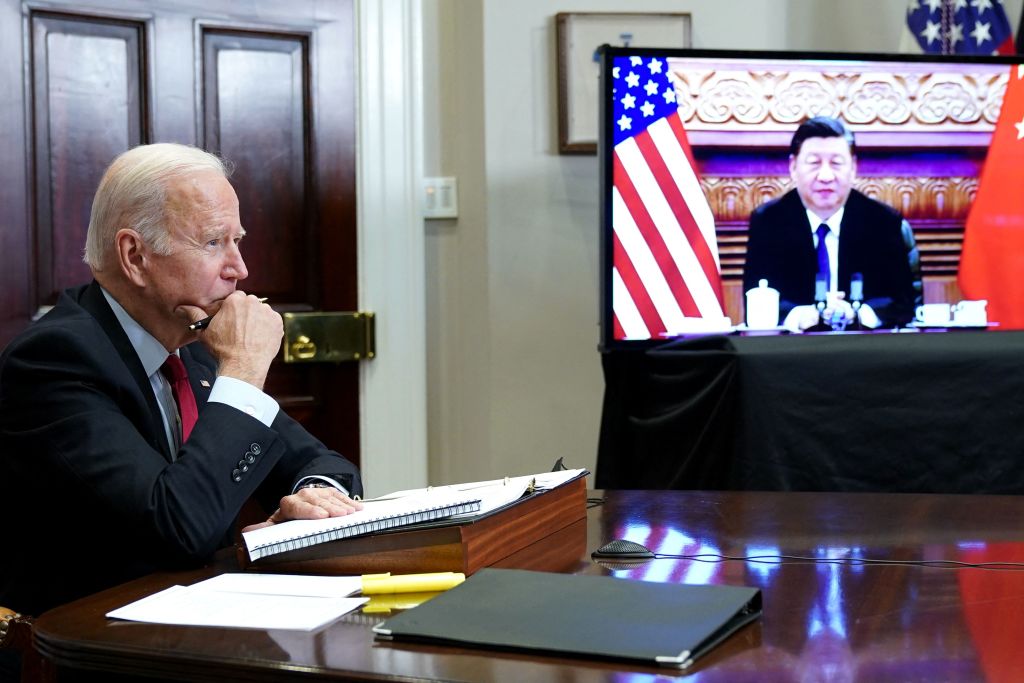U.S. Speaker of the House Nancy Pelosi’s visit to Taiwan this week only lasted 24 hours, but the trip will pose long-term challenges for the already tense relationship between Beijing and Washington and pose significant problems for Taipei, which looks set to suffer the worst of Beijing’s ire.
“Pelosi’s visit to Taiwan has plunged U.S.-China relations to a new low,” says Yu Jie, a senior research fellow on China at the Chatham House think tank in London. “The reservoir of trust forged between the two sides over the last 40 years appears to be almost exhausted.”
The Chinese leadership has indicated as much. The topic of Taiwan dominated a call between U.S. President Joe Biden and Chinese President Xi Jinping in late July, in which Xi warned Biden against “playing with fire” over the island, which China regards as a renegade province. On Tuesday, China’s foreign ministry said Pelosi’s stopover will have “a severe impact on the political foundation of China-U.S. relations.”
Read More: Pelosi Leaves Taiwan With the Island—and World—in a More Precarious Position
Biden has attempted to distance himself from the visit. He earlier revealed that the Pentagon thought the trip by Pelosi—a long-time critic of the Chinese government—was “not a good idea.” The White House has also underscored that U.S. policy has not changed and that Washington “strongly opposes unilateral efforts to change the status quo or undermine peace and stability across the Taiwan Strait.”
That could help mitigate the damage. “While Congress has a foreign policy role, it is the executive branch that runs U.S. foreign relations,” says Zhang Baohui, a professor of political science at Hong Kong’s Lingnan University. “I think the Chinese [government] understands this and that should also limit the impact of Pelosi’s visit on the broader U.S.-China relations.”

That doesn’t mean that it will be smooth sailing. Former U.S. President Donald Trump labelled China a strategic “competitor” in his first national security strategy, and an acrimonious trade war propelled the relationship to a decades-low nadir. Relations under the Biden administration haven’t warmed much.
“The trajectory of this relationship has been set already,” says Zhang. “U.S.-China strategic rivalry has been in the making for quite a few years.”
Pelosi’s stopover could scupper U.S.-China cooperation
Despite their differences, the countries have been working together on some of the world’s biggest problems. Beijing and Washington announced their cooperation on climate change at the COP26 climate summit, saying that they would join forces to curb methane emissions. The COVID-19 pandemic has also demonstrated the importance of the two nations collaborating on health security. If those efforts stall, it may leave the entire world worse off.
“When you strip away all the fiery rhetoric, what Beijing seeks is an ability to reestablish trust with the U.S.,” says Andrew Mertha, the director of the School of Advanced International Studies (SAIS) China Global Research Center at the Johns Hopkins University. He says the visit could hurt China’s ability to establish that trust, and “scuttle opportunities for potential cooperation on bilateral issues that only the U.S. and China working together can manage.”
Read More: Column: There Are No Benefits to a Pelosi Visit to Taiwan
Zhang says that the episode may actually highlight the cooperative side of U.S.-China relations. Although the countries are at systemic loggerheads, both want to manage their differences. Biden said in a virtual meeting with Xi in late 2021 that he wanted to ensure there were “common-sense guardrails” in place to keep lines of communication open and prevent competition from veering “into conflict.”
“The outcome of Pelosi’s visit indeed confirmed that this mechanism is in place and successfully prevented scenarios that could lead to inadvertent military conflicts in the Taiwan Strait,” says Zhang.

Beijing’s military drills, which started after Pelosi left the island, are expected to continue for several days. The G7 says the exercises are “increasing tensions and destabilizing the region” and it is certainly possible that they could lead to unintended consequences.
But Yu, of Chatham House, says that despite “a chorus of nationalistic rhetoric,” China will “be careful not to stumble into an accidental conflict with the U.S. which risks colossal damage on all fronts.”
Bonnie Glaser, the director of the Asia Program at the German Marshall Fund of the United States, agrees. “Both sides have an enormous stake in stopping the downward spiral,” she says. “Perhaps this will be a wake-up call that they need to do so.”
More Must-Reads from TIME
- Donald Trump Is TIME's 2024 Person of the Year
- Why We Chose Trump as Person of the Year
- Is Intermittent Fasting Good or Bad for You?
- The 100 Must-Read Books of 2024
- The 20 Best Christmas TV Episodes
- Column: If Optimism Feels Ridiculous Now, Try Hope
- The Future of Climate Action Is Trade Policy
- Merle Bombardieri Is Helping People Make the Baby Decision
Write to Amy Gunia/Hong Kong at amy.gunia@time.com